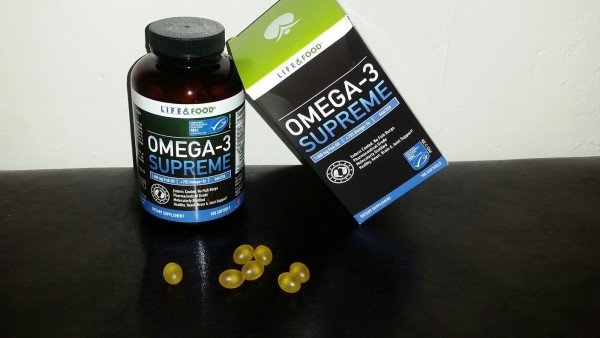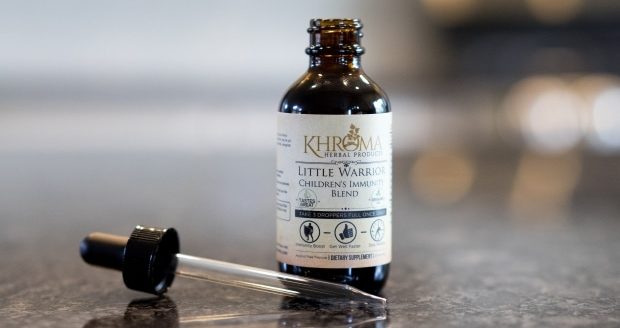Omega-3 Supreme Product Review
The Good Fat
Did you know not all fats are bad? Omega-3 fatty acids is one of the good ones. The omega-3 fatty acids in fish oil are good for the heart and brain. Fatty acids play a role in the structure of all cell membranes in your body. Omega-3 fatty acids hold their shape better. This makes red blood cells more ‘flexible,’ so they move more easily between the capillaries and cells, delivering oxygen and removing carbon dioxide.
Fish oil does more than help deliver oxygen. It also improves lung oxygen intake and promotes the development of new blood vessels (angiogenesis).
- A study from the University of California observed fish oils relaxed arteries in the lungs and led to an overall increased oxygen intake into the lungs.
- Another study from the University of Indiana noted fish oil supported continuous blood flow to and from the lungs in asthmatic patients, who often experience constricted breathing and shortness of breath after exercise.
- Diets enriched with fish oil increased the number of endothelial progenitor cells which play a role in new capillary growth.
Types of Omega-3 Fats
- Obtained from both animal and plant sources
- Confusion when it comes to what type you should take to get the best omega-3 benefits.
- Marine animals such as fish and krill provide eicosapentaenoic acid (EPA) and docosahexaenoic acid (DHA)
- Mostly promoted for their protective effects on your heart.
- Flaxseed, chia, hemp, and a few other foods offer alpha-linoleic acid (ALA).
- You would want to choose an animal-based variety – most of the health benefits linked to omega-3 fats are linked to the animal-based EPA and DHA, not the plant-based ALA.
- Plant-based omega-3 fats are NOT inherently harmful or should be avoided.
- Ideally, what you want to do is include an animal-based form in your diet. For instance, you can combine flax and hemp in your diet with animal-based omega-3s.
Sources of Animal-Based Omega-3 Fats
Here are the primary animal-based Omega 3 options:
- Fish
- In a perfect world, fish can provide you all the omega-3s you need.
- The vast majority of the fish supply is now heavily tainted with industrial toxins and pollutants, such as heavy metals, PCBs and radioactive poisons. These toxins make eating fish no longer recommended.
- The only exceptions are wild-caught Alaskan salmon and very small fish like sardines.
- The highest concentrations of mercury are found in large carnivorous fish like tuna, sea bass and marlin.
- You may need to be especially cautious with canned tuna as well, as independent testing by the Mercury Policy Project found the average mercury concentration in canned tuna is far over the “safe limits” of the Environmental Protection Agency (EPA).
- Avoid farmed raised salmon which contains only about half of the omega-3 levels of wild salmon.
- It may also harbor a range of contaminants, including environmental toxins, synthetic astaxanthin, and harmful metabolic byproducts and agrichemical residues of GMO corn- and soy-based feed they are given.
- In a perfect world, fish can provide you all the omega-3s you need.
- Fish Oil
- Among the primary ways that people enhance their intake of omega-3 fats.
- High-quality fish oils can certainly provide many health benefits. However, this oil is weak in antioxidants. This means that as you increase your omega-3 intake through fish oil consumption, you actually increase your need for added antioxidant protection.
This happens because fish oil is a bit perishable, and oxidation leads to the formation of harmful free radicals. Antioxidants are therefore necessary to ensure that the fish oil doesn’t oxidize and become rancid in your body.
Omega 3 Benefits
Omega-3 ranks among the most important essential nutrients today.
- In 2008, the American Journal of Clinical Nutrition published three studies investigating the role of EPA and DHA Omega-3 fatty acids
- Low concentrations of EPA and DHA resulted in an increased risk of death from all causes, as well as accelerated cognitive decline.
- The studies also suggested a higher intake of Omega-3s may bring certain health benefits short-term supplementation cannot give.
- Low concentrations of EPA and DHA resulted in an increased risk of death from all causes, as well as accelerated cognitive decline.
- An Italian study (GISSI) of 11,324 heart attack survivors
- Patients supplementing with fish oils markedly reduced their risk of another heart attack
- American medical researchers reported men who ate fish once or more every week had a 50 percent lower risk of dying from a sudden cardiac event than do men who eat fish less than once a month.
- Normalizes and regulates your cholesterol triglyceride levels
- Studies have also shown Omega-3 fats are anti-arrhythmic (preventing or counteracting cardiac arrhythmia), anti-thrombotic (prevents thrombosis or a blood clot within a blood vessel), anti-atherosclerotic (preventing fatty deposits and fibrosis of the inner layer of your arteries) and anti-inflammatory (counteracting inflammation – the heat, pain, swelling, etc).
Omega-3 benefits cover many areas of health, from mental and behavioral health to preventing premature death from disease, including the following:
| Coronary heart disease and stroke | Essential fatty acid deficiency in infancy (retinal and brain development) | General brain function, including memory and Parkinson’s disease |
| ADHD | Autoimmune disorders, e.g. lupus and nephropathy | Osteoporosis |
| Crohn’s disease | Cancers of the breast, colon, and prostate | Rheumatoid arthritis |
Are You Running Low on These Beneficial Fats?
- Most of us don’t eat enough Omega-3 fats
- Omega-3 deficiency likely the sixth biggest killer of Americans.
- This deficiency can cause or contribute to serious mental and physical health problems.
- May be a significant underlying factor of up to 96,000 premature deaths each year.
- Dietary fat intake has been among the most widely studied dietary risk factors for breast and prostate cancers.
- Two studies from 2002 explain how Omega-3 can protect against breast cancer. BRCA1 (breast cancer gene 1) and BRCA2 (breast cancer gene 2) are two tumor suppressor genes that, when functioning normally, help repair DNA damage, a process that also prevents tumor development.
- Omega 3 deficiency may be responsible for nearly 100,000 deaths every year.
What to Look For in a Supplement?
At this point, there should be no question we all need to supplement our diet with Omega-3 fats. If you visit the vitamin section of your local grocery or health food store you’ll notice a wide-variety of fish-oil supplements. Here are some of things you should expect in a quality supplement:
- High-quality, concentrated fish oil is pharmaceutical grade contains at over 75% of Omega–3 content.
- Most companies claim their products to be ‘Extra Potent’ Omega–3, when they may contain up to 2000 mg fish oil, but with only 1200 mg of Omega–3.
- This equates to only 60% Omega–3, which is very low efficiency. You are essentially consuming additional fatty-acids that do not contain any Omega–3.
- Most companies claim their products to be ‘Extra Potent’ Omega–3, when they may contain up to 2000 mg fish oil, but with only 1200 mg of Omega–3.
- Many fish oils are highly processed and can oxidize easily because Omega–3 fats have a low heat threshold and can go rancid.
- The label should indicate there are no extra fillers that are not omega 3 fats.
- Contains no sugar, egg, additives, soy, milk, lactose, gluten, wheat, yeast or shellfish.
- Contains the daily minimum requirement of 1000mg.
- Sourced from wild not farmed fish meeting the Marine Stewardship Council standards for a well-managed and sustainable fishery.
- Distilled fish oil is cleaned, refined and fully tested to make sure it contains the lowest PCB, toxin, peroxide and p-anisdine levels.
- Made from IFOS 5 star certified fish
- Enteric coated for max absorption by dissolving in the intestines instead of the stomach which also avoids fish burps.
The Answer – Omega-3 Supreme
Almost three weeks ago, I started taking Omega-3 Supreme. Just by looking at the box, I sensed the makers Life & Food stand behind their product with quality and pride – something that instantly stood out to me. As I reviewed the box, I found Omega-3 Supreme met if not exceeded what I listed in What to Look for in a Supplement.
For example, Omega-3 Supreme contains 75% omega-3 fish oil from Wild Alaskan Pollock. It’s contaminant tested, MSC certified and guarantees maximum absorption because of its enteric coating. From the first day, I felt my energy level pickup it continues to remain high since then. When it comes to getting your Omega-3’s you won’t go wrong with Omega-3 Supreme. Be sure to check the box to see for yourself.
I received this product complimentary in exchange for my honest opinion and unbiased review.






